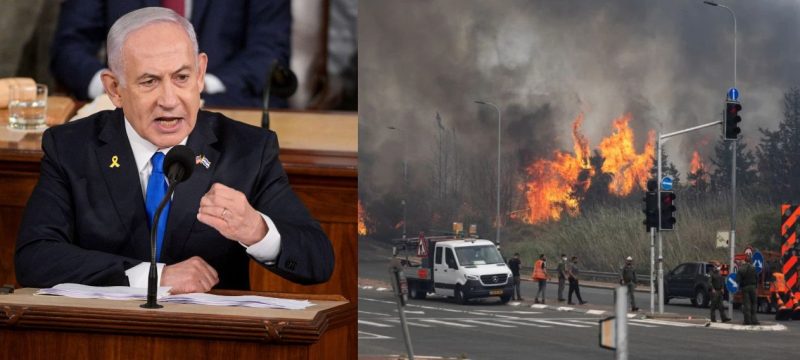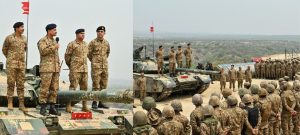Israeli Prime Minister Benjamin Netanyahu has declared a national emergency as the country confronts its most devastating wildfires in over ten years, especially threatening areas around Jerusalem and forcing mass evacuations.
Massive clouds of smoke engulfed roads west of the capital as fires, intensified by scorching heat and strong winds, rapidly spread. Firefighters, assisted by police and military units, are working urgently to control the flames, while emergency teams have reported several injuries.
Read more: South Koreans Mourn Historic Temple Lost to Wildfire, Mobilize to Protect Others
Speaking in a video message, Netanyahu emphasized the gravity of the situation, stating, “This is a national—not just local—emergency. Our top priority is the protection of Jerusalem.” The fires led to the shutdown of the critical Jerusalem–Tel Aviv highway, and multiple towns were evacuated as flames neared residential zones and vital infrastructure.
Magen David Adom (MDA), the national emergency service, reported treating 23 individuals—13 of whom were hospitalized due to burns and smoke inhalation. Among the injured were two pregnant women and two infants.
Firefighting aircraft were temporarily grounded due to harsh weather conditions, with Fire Chief Eyal Caspi highlighting the immediate focus on saving lives over property. Meanwhile, a man from East Jerusalem was detained for allegedly trying to ignite a fire, though authorities haven’t confirmed a direct link to the broader wildfire outbreak.
National Security Minister Itamar Ben Gvir visited the affected areas and hinted at possible arson. He noted that Israel had reached out to international allies for help, and firefighting aircraft from Italy and Croatia were expected to arrive soon.
Scenes near Latrun showed blazing fires alongside the highway as terrified drivers abandoned their vehicles. At least five localities have been evacuated, and police urged people to avoid non-essential travel. Residents near Modiin criticized the authorities for inadequate preparedness despite known fire risks amid extreme weather.





